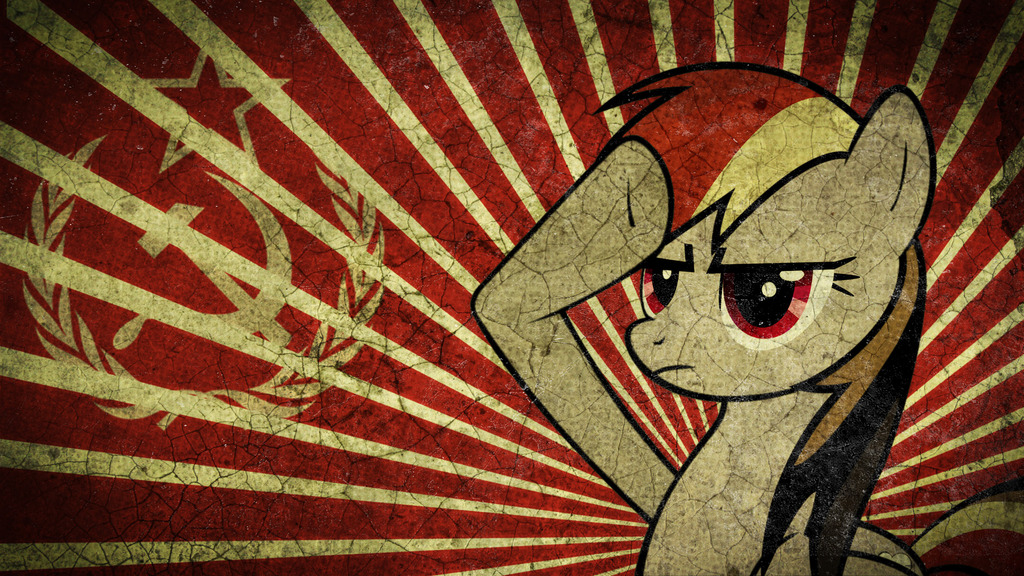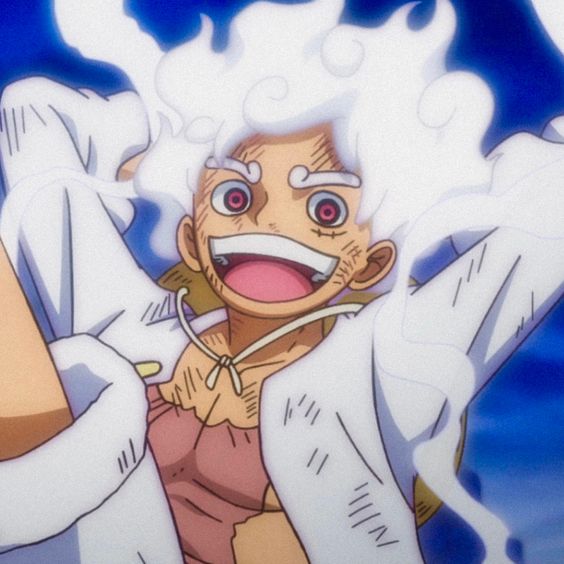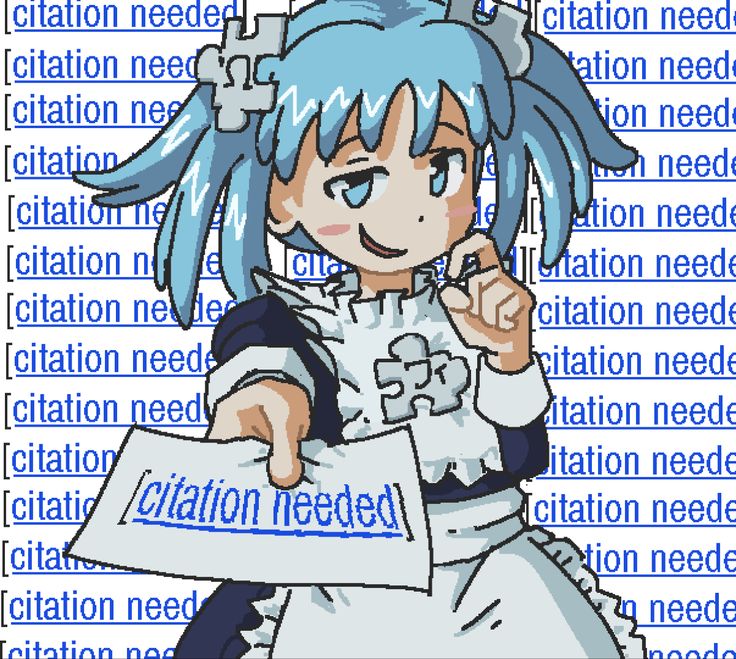Because he was unshakeably principled as a communist and anti-imperialist, and during his leadership the USSR posed the biggest threat to the global system of capitalism that the world has ever seen. He could not be reclaimed for the purposes of anti-communist propaganda like Trotsky nor relegated to the status of a mere theorist like Marx or an idealist revolutionary like Lenin is sometimes (erroneously) portrayed. Stalin achieved too much in practice for the building of socialism, while the victory of the USSR in WW2 under his leadership gave socialism an immense prestige boost around the world.
In short, he scared the bejeezus out of the bourgeoisie for what he represented and what he could have inspired in people across the world had he not been smeared with the lies of Khrushchev and the anti-communist propaganda of the West (frequently borrowed directly from Nazi anti-Soviet propaganda), so they vowed to forever destroy his image and make sure no one like him would ever arise again.
Sadly, this ploy worked. Thanks to Khrushchev’s speech of lies you even had other principled communists (at one point even Che Guevara believed some of the accusations leveled at Stalin) around the world start to doubt what they thought they knew about Stalin and the USSR which caused a worldwide crisis of confidence among communists and a massive split between those parties who accepted the Khrushchevite lies and those who didn’t.
Meanwhile in capitalist societies anti-communist indoctrination raised entire generations to internalize the belief that Stalin was equivalent to Hitler and the USSR another Nazi Germany, which destroyed their communist parties as effective political forces and made sure that most remaining communists and socialists would have an almost instinctual aversion to the Marxist-Leninist line and practical revolutionary politics.
This led to Western communists retreating into the realm of purely academic Marxism as an economic and not a revolutionary theory, or into all sorts of schools of pseudo-Marxist radical liberalism (like the “Frankfurt School”), anarchism, ultra-left deviations, or just straight up defect to social democracy.
But i will end this on an optimistic note and remind everyone of what Stalin himself said:
“I know that after my death a pile of rubbish will be heaped on my grave, but the wind of History will sooner or later sweep it away without mercy.”
Very well put. It’s almost as if he knew he was going to be a scapegoat.
Another point i would like to add on is that Stalin was used as a scapegoat for all the contradictions that were resolved, many times harshly, during the early development of the USSR, the transition from a semi-feudal society to socialist society was not without it’s contradictions.
In a similar fashion to how crimes done by imperialist interests are pinned on “corrupt individuals” and not the nature of the system.
unshakeably principled
He made it illegal to be gay.
great article, comrade.
So the argument in that link is “everyone else was homophobic too so it’s okay”, and I need to stress that that is not unshakeably principled behaviour. That is an example of shaken principles. If your defence of Stalin is “he was only as bad as the capitalists”, he’s still shit.
You are missing the point. Also, bringing up gay rights in the USSR is a non-sequitur, it has nothing to do with what my original comment was about. I was doing you a favor providing you with a source that explains the historical context behind the unrelated topic that you brought up, it’s up to you if you prefer to ignore it.
You said he was unshakeably principled. If you don’t want people to challenge your claims, don’t make them. It’s not changing the subject to call you out on the bullshit you didn’t want people to call you out on, it’s just life. Get used to it.
You said he was unshakeably principled.
Yes, he was a principled marxist. Marx didn’t really write about gay people. LGBT rights weren’t on the radar of the average marxist (or much of anybody really) in the early 20th century.
LGBT rights weren’t on the radar of the average marxist
Plenty of German leftists, Marxist or otherwise signed a petition, in the 1890s, opposing Paragraph 175 of the German Legal code that criminalized homosexuality, including Albert Einstein, August Bebel, and Karl Kautsky.
Queer activists, like Karl Heinrich Ulrichs and Magnus Hirschfeld, actively sought out far left politicians in their attempt to repeal the law.
Bebel, who was the one to sponsor the bill to repeal paragraph 175, continued to be an advocate of women’s and queer rights throughout his life and career.
Alexandra Kollontai was Bisexual and opposed the criminalization of homosexuality under Stalin’s administration.
Harry Hay, who would found The Mattachine Society, one of the first gay rights groups in the US, was organizing farm workers for the Communist Party as far back as the 1930s.
Queer issues were definitely on the radar of plenty of Socialists in the early 20th century.
This argument gives the same vibes as “but everyone was racist back then!” arguments that American liberals give to hand wave away past injustices.
If we’re to be thoughtful dialectical materialists about this: while queerness has always existed, and cultures throughout history have had queer subcultures, such as the Kathoey in Thailand or Molly Houses in England, the development of Capitalism brought with it a trend towards a more systematized, wider reaching regimentation of reproductive labor, then what had been seen under previous forms of class society.
On the one hand, this brought about the categorization and subsequent oppression of queer people. But on the other hand, industrialization brought people into urban areas, socialized labor, and allowed queer people to form larger communities, who could start organizing politically on a large scale.
Since the Soviet Union had not industrialized, that pressure on queer people in the Soviet Union, to organize at a large scale, didn’t exist. And the prevalence of queer organizing in the more industrialized west, brought Stalin’s administration to make the idealist error that queerness was an outgrowth of “bourgeois decadence”, rather than material conditions.
It were fucking 30’s, in the west gays were still murdered for that in 70’s and US decriminalised homosexuality from 1961 (first state) to 2003 (!)
stalin shouldn’t have stopped at berlin
Warning, I went a bit off topic, also went over the character limit (TLDR at the bottom)
His time was one of changes who scared the bourgeoisie, that in turn smeared him to this day. He did positive and negative things (IMO more positive than negative). The first scare them, and they use the second to smear him.
Industrializing at a breakneck pace, in a country that lagged way behind western Europe and North America. Eventually creating a real alternative to the western pole.
Ending pseudo-feudalism in the countryside by establishing collective and state farms and expropriaring the landowners (oh no poor kulaks, they must actually work now!)
Developing a strong army worthy of the great powers of the time, one strong enough to be crucial in the defeat of fascism in WW2 and good enough to rival the world hegemon in the cold war, all without sacrificing the welfare of his people in the maintaining of that army, unlike the USA today. A strong and indipendent country with a mighty army who doesn’t follow orders from the US is bad enough for the unipolar alliance, if we add socialism to the mix… You get the idea.
Making the USSR an indipendent country, getting rid of foreign influence, a big one. If you read Lenin’s imperialism, he illustrates how Russia at that time was yes a huge empire, but also victim of financial imperialism by foreign superpowers, expecially France. the western capitalist league didn’t like that, they couldn’t make easy money from the Soviet people anymore.
Ending famines and misery once and for all. The 1933 famine (itself a hugely propagandized about fact) was (with the exception of WW2 and the shock therapy of the 90s) the last time Soviet people witnessed such misery, famines were a regular occurrence before Socialism. No more desperate workers who will accept any wage or peasants to toil all their life in the field.
When you have a leader who managed to get a country that was barely in the 20th century in the cities, and still pseudo-feudal in the countryside, and turn it into a modern, independent, strong and egalitarian nation in the span of ~30 years, people start having thoughts about emulating his actions and start believing in his ideals, and some of them succeeded too, thing that scares the burghers even more. And his ideology (and the practical applications of such ideology) are very cumbersome to the capitalist class, the class who, by means of their capital control: Newspapers, Radio stations, TV stations and more recently online publications, social medias, fake universities on YouTube and “independent thinkers” (the irony). And can influence the government by many means if they need.
When you analyze what capitalists do in order to keep their wealth and the derived power and privilege, I think it’s useful to imagine yourself as one of them. They’re just people who, by various, 99% of the times immoral, means acquired wealth, invested it into wealth-generating assets (our beloved means of production, or even more predatory investments like rent or interest, things rightfully criticized even by classical and modern economists), and aren’t really interested in giving them up along with all their newfound (99% of the times inherited) capital, who consents them to live a very comfortable life. It’s the most logical thing to do if you’re a rich asshole and I think it’s important to understand their thinking.
Imagine you own a newspaper in an imperialized country in the 40s-50s, you obviously don’t want to just give away your house, money, business etc. You live comfortably while others work on your assets and make you money, so what do you do to keep the toiling masses in line? We are still not in a full-blown ancap society so you can’t just hire a paramilitary squad and kill everybody who dissents (not on the open market. You can do it and it has been done tons of times, most notably in Indonesia, but it would be bad press if you’re caught!) so what do you do? Well you have your newspaper, you could look for somebody who’s an expert in influencing people, and who’s political views align with the ones more useful for you to keep your wealth at the time (in pre-1990s Europe was social-democratic corporatism, today it might be neoliberalism and tomorrow who knows) you might hire and pay them a fraction of your wealth, even not turning a profit on their work in order to spread their ideology to the masses through your media. And in due time convince people your way is just “the way it is” and that leftist alternatives are “too far”, “murderous”, “inefficient” or “barbaric” (in our example, the USSR hasn’t “failed” yet)
If people believe in something, then (for this example) Stalin wants to attack, abolish or kill that. Are you religious? Well, the USSR abolished religion and turned everybody into r/atheism redditors. Do you like to travel? Enjoy your state-sanctioned travel to bumfuck nowhere, 2000km from where you live, oh you wanted to go to another place? Too bad. Do you like literature and the arts? I hope you like censored and pre-approved “art” by state-sponosred propagandists. Do you own the small store down the street? Believe it or not, gulag for you! Oh you also recieved a grant from the CIA, as long as you talk bad about that Stalin guy (and other US adversaries) they’re going to give you millions, and you can keep the difference.
You still think Stalin is a good president? What are you, a commie? Don’t you know Stalin killed x million people? You are clearly an extremist who shouldn’t be taken into account, in fact, let’s just ban/censor in some way your party and maybe arrest your lead figures. If we think we could get away with it we’ll also beat you up, put you in jail or worse. Your movement will become irrelevant and soon enough nobody will be there to hear what you have to say. And of those few who would be ready to hear, many will just be scared, and join our controlled opposition instead.
Maybe it won’t work at first, but these guys are playing the long game. There were magnitudinally more people who viewed Stalin in a good light during his time than today (and he wasn’t portrayed as a saint in his times too, not even in WW2 when they had to not smear him in the same amount of shit as before, or after the war) over time people bought into the hegemonical proganada and now Stalin, who’s not seen as a recent figure, but as a distant, dark and “historical” figure, transcending time, is much easier to smear. And we are seeing it. The majority of people living in ex-Soviet countries who lived under him or knew people who did still appreciate his job, while the younger generations, grown up with hegemonical propaganda (expecially western, but also domestic) don’t see him as favorably.
After a while you don’t even need to blast anti-Stalin propaganda 24/7, after you have a majority of people believing you, they will just spread the rumors themselves, free of charge and with infinitely more manpower and reach than even the best of CIA propaganda operations could ever hope to achieve.
TLDR He was the leader of a country who witnessed the fastest economic, industrial, social, military and political development in history, along with Mao’s China (and we know Mao is loved in the west) When you have a country who manages to get it’s indipendence from imperialists, develop their democracy and their industry and to feed everybody, all of this while under embargo, western slander and two enormous wars, people (expecially in poor, imperialised countries, who can compare their conditions with the ones of Russia) start to get ideas. And people can get organized and lead revolutions to change the current ststr of things. Add to this that some of those movements succeeded and the bourgeoise is in a tough spot, they have 3 choices:
Making temporary concessions. Thing they do when they deem fit, like in the west during the cold War or to a milder extent in 2020.
Or they suppress the radical movement in cold blood, another thing they did and do. But they must be careful not to overdo it, else the damage to their reputation will be too great.
Or they smear their opposition to try to make the masses sleep, either by making the socialist alternative seem undesirable, by making the status quo (or a controlled opposition) seem palatable or both. They mainly use two tactics:
Exaggerating mistakes. Stalin had reactionary views on progressive policies such as Gay marriages, abortion and the like, and that sometimes reflected in Soviet policy. That’s a fair criticism. But it is foolish to think the USSR was sole in opposing those progressive policies. No country except Germany for a couple years had legalised same-sex marriage and abortion. His position was wrong, but at least understandable.
Straight up inventing things, or mixing things that happened with fiction. Think about the western version of the Holodomor: a genocide perpetrated by Stalin on the Ukrainian people by mean of starvation. Yes there was starvation and Ukrainians died, but no qualified person in good faith would claim Stalin had a specific quest to erase the Ukrainian people, these half-thruths are so insidious because pulling up actual academic sources gets you associated with holocaust deniers and the like. All while they sometimes literally cite nazis
They know if they don’t make every alternative look demonic, and the status quo comparably “tolerable” people will flock to socialism and they will lose their status. People aren’t stupid, just propagandized.
Sorry for the very long rambling rant, just felt like exorcising some brainworms.







